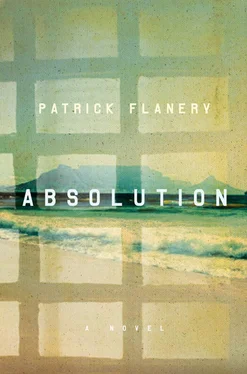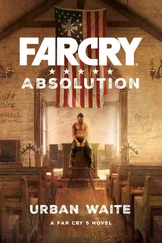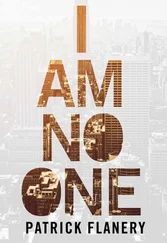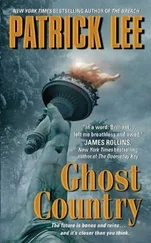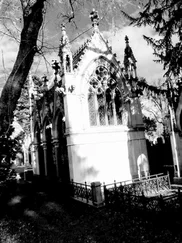‘And if one reads the censor’s reports on your books, they’re all judged too “literary” to pose any risk of fomenting unrest among “average” readers.’
‘By this they mean the majority. I have read the reports. Books and pamphlets in simple, polemical language, books that outlined in undisguised terms the realities of this country under the old government — those were the books the censors were most inclined to ban, not mine. They could have condemned my books, found them “undesirable” in that peculiar erotics of the language of their censorship, on any number of grounds: indecency, obscenity, offensiveness to public morals, blasphemy, ridicule of any particular racial or religious group, being harmful to the relations between races or a threat to national security. Instead they found them “not undesirable”, which is not to say that they were judged in any way “desirable”, only that they were not offensive enough to be actively undesired . They were tested and found, simply, passive things, hanging in the liminal space between desire and repulsion, want and rejection. It is a curious way to think of literature, particularly for people — the censors I mean — who so naively fancied themselves sophisticated arbiters of the literary. But all of that does not mean I was immune to the effects of censorship.’
*
On Greg’s suggestion I went to Robben Island on my own yesterday to see the former prison buildings. He thought it might help me ‘reconnect’ with the country. It was overcast and the views of the city were obscured by cloud and mist. I couldn’t see anything beyond the boat, and visibility was even worse on the island. After disembarking we were loaded onto a tour bus and a young man, tall and thin with dreadlocks, began giving his prepared speech. He showed us the settlement, the Maximum Security Prison, the old leper colony, the house where Robert Sobukwe had been isolated, the quarry where prisoners did hard labour, and where we spent far too long because a visiting American senator was having a private tour and holding us up.
With only twenty minutes left of our allotted time on the island, we were allowed to walk around the cells with a former political prisoner as our guide. Greg told me this would be the most moving part of the visit, but our guide was reticent. When people asked him pointed but polite questions about the movement, he became defensive and parroted the party line. Whatever the leaders said was right must be so. I began to feel ill.
The most famous cell moved me only insofar as it represented the place where so much of one exceptional life had been spent, but it was difficult to feel the trace of any presence there. It is bleak and small and cold. It contains no life or spirit of its own.
I paused to photograph the office where the prison’s censor read all the inmates’ incoming and outgoing correspondence. I tried to imagine the experience of receiving a letter that might begin with the normal salutation, in the hand of the beloved, only to discover two lines later that the body of the letter has been deleted by the censor’s hand, that the very words meant to give succour in a time of enforced isolation were judged too great a risk — or to know that anything one might write to those on the outside could itself be obliterated, that attempts to reassure, console, answer what could not be answered because of the censor’s obfuscations, would be blacked out anyway.
We were hurried back to the boat. I hoped the fog and mist would clear, but everything was grey and all the passengers hung around inside sulking.
‘It was disappointing,’ I told Greg that evening. ‘I wanted it to be moving.’
‘You can’t buy catharsis,’ he said, feeding Dylan spoonfuls of yogurt. ‘To think you can is perverse. The tour guide, the bus driver, the ex-prisoner, all of them, they spend every day there. They have an endless stream of people like you wanting to hear the stories, expecting to be moved, to be made to feel less or more responsible, depending on who you are and where you’re from.’ He catches a drip of yogurt before it rolls from Dylan’s chin to his shirt. ‘ You complain about not being moved. Imagine what that must do to them. Maybe it was an off day. Maybe they spent all their energy moving people yesterday and didn’t have anything left to give but the automatic narrative. Maybe they spent all their energy on the lone American dignitary. Think what that means to the local people,’ he said, shaking his head. Dylan squirmed in his chair and reached for his cup of juice. ‘For them the island isn’t just a tourist site but a place of pilgrimage, and their one visit, maybe the only one they’ll ever make, was ruined by an American. Don’t get me started. For foreigners it’s just atrocity tourism. We can’t rebuild a society on atrocity tourism. I don’t know, maybe I shouldn’t have told you to go. I feel guilty that you’re not as connected to this country as I am, and jealous, too, that you’ve been free of it for so long.’ Dylan drank his juice, ate another spoonful of yogurt, and his eyes began to droop. Greg lifted him out of the chair and handed him to Nonyameko, who took him off to bed. ‘Don’t get me wrong,’ he said, ‘I’m thrilled you’ve finally come home. It’s just a shame you and Sarah are going to live in Jo’burg.’
We sat for a while in front of the fire, drinking a cheap bottle of pinotage that would cost four or five times as much in New York. Greg has been more or less single for as long as I’ve known him. There’s never been anyone else permanent in his life until Dylan. I know the boy is biologically his, but I don’t know the other details. The mother was either hired, or a friend I don’t know.
I think of our first meeting, at a depressing drinks event for new graduate students at NYU. Greg stood out in a pink sweater with his tattooed hands and black hair that had been dyed a shade of blue so dark the colour appeared only when the light hit it, making him look like an eccentric superhero. Discovering we had something more specific in common than mere foreignness, we spent the night talking in the corner and soon became close friends. A year later, he returned to Cape Town while I stayed in New York, finished my doctorate, married Sarah, and taught part-time at three different colleges, running up and down Manhattan until I was senseless with fatigue. When I was commissioned to write Clare’s biography I knew it was the opportunity I’d been looking for to do something different and, more importantly, an opportunity to try coming back home.
They saw only one house, and it was so obviously perfect that Marie looked as though she had decided Clare would buy it even before they went inside. Clare was not as certain. The estate agent, a sunburned man with an overhanging stomach and a voice like curdled cream, met them at the entrance to the driveway, opened the gate with a remote control, and indicated they should follow him. The perimeter wall, half a metre thick, was topped with barbed wire wrought and painted to resemble ivy, with a staff of electrified wires above. It was self-effacing security for people embarrassed to think they needed it.
‘You’ve got all the security features here,’ the agent said, stepping from his car. ‘Cameras watch the exterior of the house, the entire perimeter wall, the gate, all the time. These guys are the best, primo . If they could smell the intruders they would, believe you me.’
They stood in the front garden, in a paved courtyard overlooking the steep terraces of the lawn falling down towards the street and the electric gate, now shut again, enclosing the three of them and their two shining cars. A group of gardeners, arms lax with fatigue, unloaded from a truck across the road, spilling out and trudging to the properties they were paid to tend, each announcing himself at a residential intercom, then waiting until the doors or gates opened, allowing access. It was the kind of neighbourhood in which Clare swore she would never live: a warren of celebrities, foreign dignitaries, and arms dealers. Perhaps it was fitting that she and Marie, scarcely less foreign in their way, possibly more dignified, should retreat to the company of such rabble.
Читать дальше
